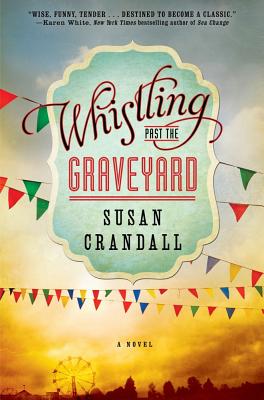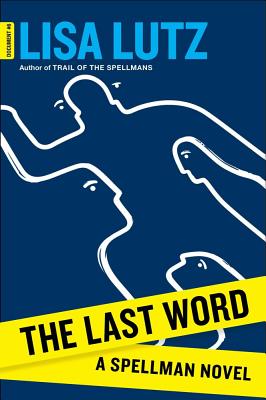In the summer of 1963, nine-year-old spitfire Starla Claudelle runs away
from her strict grandmother’s Mississippi home. Starla hasn’t seen her
momma since she was three—that’s when Lulu left for Nashville to become a
famous singer. Starla’s daddy works on an oil rig in the Gulf, so
Mamie, with her tsk-tsk sounds and her bitter refrain of “Lord, give me
strength,” is the nearest thing to family Starla has. After being put on
restriction yet again for her sassy mouth, Starla is caught sneaking
out for the Fourth of July parade. She fears Mamie will make good on her
threat to send Starla to reform school, so Starla walks to the
outskirts of town, and just keeps walking. . . . If she can get to
Nashville and find her momma, then all that she promised will come true:
Lulu will be a star. Daddy will come to live in Nashville, too. And her
family will be whole and perfect. Walking a lonely country road, Starla
accepts a ride from Eula, a black woman traveling alone with a white
baby. The trio embarks on a road trip that will change Starla’s life
forever. She sees for the first time life as it really is—as she reaches
for a dream of how it could one day be.
Chuck Klosterman has walked into the darkness. As a boy, he related to the cultural figures who represented goodness—but as an adult, he found himself unconsciously aligning with their enemies. This was not because he necessarily liked what they were doing; it was because they were doing it on purpose (and they were doing it better). They wanted to be evil. And what, exactly, was that supposed to mean? When we classify someone as a bad person, what are we really saying (and why are we so obsessed with saying it)? How does the culture of deliberate malevolence operate?
In I Wear the Black Hat, Klosterman questions the modern understanding of villainy. What was so Machiavellian about Machiavelli? Why don’t we see Bernhard Goetz the same way we see Batman? Who is more worthy of our vitriol—Bill Clinton or Don Henley? What was O. J. Simpson’s second-worst decision? And why is Klosterman still haunted by some kid he knew for one week in 1985?
Masterfully blending cultural analysis with self-interrogation and imaginative hypotheticals, I Wear the Black Hat delivers perceptive observations on the complexity of the antihero (seemingly the only kind of hero America still creates). I Wear the Black Hat is a rare example of serious criticism that’s instantly accessible and really, really funny. Klosterman continues to be the only writer doing whatever it is he’s doing.
The sixth installment of the critically acclaimed, New York Times bestselling, Edgar- and Macavity-nominated and Alex Award-winning series by Lisa Lutz, finds our intrepid heroine of the series, Isabel Spellman, PI, at a crossroads. Izzy is used to being followed, extorted, and questioned—all occupational hazards of working at her family’s firm, Spellman Investigations. Her little sister, Rae, once tailed Izzy for weeks on end to discover the identity of Izzy’s boyfriend. Her mother, Olivia, once blackmailed Izzy with photographic evidence of Prom Night 1994. It seemed that Spellman vigilance would dissipate after Izzy was fired for breaching client confidentiality, but then Izzy avenged her dismissal by staging a hostile takeover of the company. She should have known better than to think she could put such shenanigans behind her.
In The Last Word, Izzy’s troubles are just beginning. After her takeover of Spellman Investigations, her employees are the furthest thing from collegial...and Izzy finds herself struggling to pay the bills. But when she is accused of embezzling from a former client, the ridiculously wealthy Mr. Slayter, the stakes become immense. If Izzy gets indicted, she could lose her PI license and the Spellman family’s livelihood, not to mention her own freedom. Is this the end of Izzy Spellman, PI?
“I know that some of you reading this are convinced humans are a myth, but I am here to state that they do actually exist. For those that don’t know, a human is a real bipedal life form of midrange intelligence, living a largely deluded existence on a small waterlogged planet in a very lonely corner of the universe.”
The bestselling, award-winning author of The Radleys is back with what may be his best, funniest, and most devastating dark comedy yet. When an extraterrestrial visitor arrives on Earth, his first impressions of the human species are less than positive. Taking the form of Professor Andrew Martin, a prominent mathematician at Cambridge University, the visitor is eager to complete the gruesome task assigned him and hurry back home to the utopian world of his own planet, where everyone enjoys immortality and infinite knowledge.
He is disgusted by the way humans look, what they eat, their capacity for murder and war, and is equally baffled by the concepts of love and family. But as time goes on, he starts to realize there may be more to this weird species than he has been led to believe.
Disguised as Martin, he drinks wine, reads poetry, develops an ear for rock music and a taste for peanut butter. Slowly, unexpectedly, he forges bonds with Martin’s family, and in picking up the pieces of the professor’s shattered personal life, he begins to see hope and beauty in the humans’ imperfections and begins to question the mission that brought him there.
Praised by the New York Times as a “novelist of great seriousness and talent,” author Matt Haig delivers an unlikely story about human nature and the joy found in the messiness of life on Earth. The Humans is a funny, compulsively readable tale that playfully and movingly explores the ultimate subject—ourselves.
Chuck Klosterman has walked into the darkness. As a boy, he related to the cultural figures who represented goodness—but as an adult, he found himself unconsciously aligning with their enemies. This was not because he necessarily liked what they were doing; it was because they were doing it on purpose (and they were doing it better). They wanted to be evil. And what, exactly, was that supposed to mean? When we classify someone as a bad person, what are we really saying (and why are we so obsessed with saying it)? How does the culture of deliberate malevolence operate?
In I Wear the Black Hat, Klosterman questions the modern understanding of villainy. What was so Machiavellian about Machiavelli? Why don’t we see Bernhard Goetz the same way we see Batman? Who is more worthy of our vitriol—Bill Clinton or Don Henley? What was O. J. Simpson’s second-worst decision? And why is Klosterman still haunted by some kid he knew for one week in 1985?
Masterfully blending cultural analysis with self-interrogation and imaginative hypotheticals, I Wear the Black Hat delivers perceptive observations on the complexity of the antihero (seemingly the only kind of hero America still creates). I Wear the Black Hat is a rare example of serious criticism that’s instantly accessible and really, really funny. Klosterman continues to be the only writer doing whatever it is he’s doing.
The sixth installment of the critically acclaimed, New York Times bestselling, Edgar- and Macavity-nominated and Alex Award-winning series by Lisa Lutz, finds our intrepid heroine of the series, Isabel Spellman, PI, at a crossroads. Izzy is used to being followed, extorted, and questioned—all occupational hazards of working at her family’s firm, Spellman Investigations. Her little sister, Rae, once tailed Izzy for weeks on end to discover the identity of Izzy’s boyfriend. Her mother, Olivia, once blackmailed Izzy with photographic evidence of Prom Night 1994. It seemed that Spellman vigilance would dissipate after Izzy was fired for breaching client confidentiality, but then Izzy avenged her dismissal by staging a hostile takeover of the company. She should have known better than to think she could put such shenanigans behind her.
In The Last Word, Izzy’s troubles are just beginning. After her takeover of Spellman Investigations, her employees are the furthest thing from collegial...and Izzy finds herself struggling to pay the bills. But when she is accused of embezzling from a former client, the ridiculously wealthy Mr. Slayter, the stakes become immense. If Izzy gets indicted, she could lose her PI license and the Spellman family’s livelihood, not to mention her own freedom. Is this the end of Izzy Spellman, PI?
“I know that some of you reading this are convinced humans are a myth, but I am here to state that they do actually exist. For those that don’t know, a human is a real bipedal life form of midrange intelligence, living a largely deluded existence on a small waterlogged planet in a very lonely corner of the universe.”
The bestselling, award-winning author of The Radleys is back with what may be his best, funniest, and most devastating dark comedy yet. When an extraterrestrial visitor arrives on Earth, his first impressions of the human species are less than positive. Taking the form of Professor Andrew Martin, a prominent mathematician at Cambridge University, the visitor is eager to complete the gruesome task assigned him and hurry back home to the utopian world of his own planet, where everyone enjoys immortality and infinite knowledge.
He is disgusted by the way humans look, what they eat, their capacity for murder and war, and is equally baffled by the concepts of love and family. But as time goes on, he starts to realize there may be more to this weird species than he has been led to believe.
Disguised as Martin, he drinks wine, reads poetry, develops an ear for rock music and a taste for peanut butter. Slowly, unexpectedly, he forges bonds with Martin’s family, and in picking up the pieces of the professor’s shattered personal life, he begins to see hope and beauty in the humans’ imperfections and begins to question the mission that brought him there.
Praised by the New York Times as a “novelist of great seriousness and talent,” author Matt Haig delivers an unlikely story about human nature and the joy found in the messiness of life on Earth. The Humans is a funny, compulsively readable tale that playfully and movingly explores the ultimate subject—ourselves.




No comments:
Post a Comment